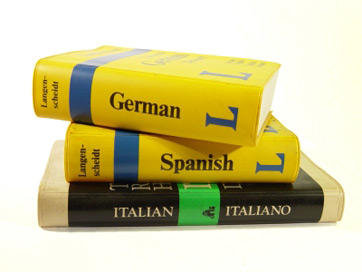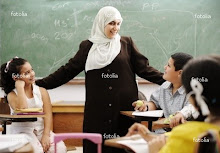What is Figurative Language?
Whenever you describe something by comparing it with something else,you are using figurative language.
Simile
A simile uses the words “like” or “as”
to compare one object or idea with another to suggest they are alike.
Example: busy as a bee
to compare one object or idea with another to suggest they are alike.
Example: busy as a bee
Metaphor
The metaphor states a fact or draws a verbal picture by the use of comparison.
A simile would say you are like something; a metaphor is more positive - it says you are something.
Example: You are what you eat.
A simile would say you are like something; a metaphor is more positive - it says you are something.
Example: You are what you eat.
Personification
A figure of speech in which human characteristics are given
to an animal or an object. Example: My teddy bear gave me a hug.
to an animal or an object. Example: My teddy bear gave me a hug.
Alliteration
The repetition of the same initial letter, sound, or group of sounds in a series of words.
Alliteration includes tongue twisters. Example: She sells seashells by the seashore.
Alliteration includes tongue twisters. Example: She sells seashells by the seashore.
Onomatopoeia
The use of a word to describe or imitate a natural sound or the sound
made by an object or an action. Example: snap crackle pop
made by an object or an action. Example: snap crackle pop
Hyperbole
An exaggeration that is so dramatic that no one would believe the statement is true.
Tall tales are hyperboles.
Example: He was so hungry, he ate that whole cornfield for lunch, stalks and all.
Tall tales are hyperboles.
Example: He was so hungry, he ate that whole cornfield for lunch, stalks and all.
Idioms
According to Webster's Dictionary, an idiom is defined as: peculiar to itself
either grammatically (as no, it wasn't me) or in having a meaning
that cannot be derived from the conjoined meanings of its elements
(as Monday week for "the Monday a week after next Monday")
either grammatically (as no, it wasn't me) or in having a meaning
that cannot be derived from the conjoined meanings of its elements
(as Monday week for "the Monday a week after next Monday")
Clichés
A cliché is an expression that has been used so often that it has become trite
and sometimes boring. Example: Many hands make light work.
and sometimes boring. Example: Many hands make light work.
The Silken Tent | Putting in the Seed | Devotion | To Earthward | All Revelation | |
Mending Wall | Stars | Going for Water | Birches | Hyla Brook | |
The Road Not Taken | Rose Pogonias | Stopping by Woods | The Pasture & Directive | Come In | |
My November Guest | Mowing | Range-Finding | Tree at my Window | Storm Fear | |
Take Some- thing like a Star | Tree at my Window | Mending Wall | |||
Stopping by Woods | The Gift Outright | I Will Sing You One-O | Kitty Hawk | Fire and Ice | |
Out, Out | |||||
After Apple- Picking | The Grindstone | The Lockless Door | Birches | Design | |
Nothing Gold Can Stay | The Gift Outright | Ghost House | Fire and Ice | The Tuft of Flowers | |
A Star in a Stoneboat | Etherealizing | After Apple-Picking | Stopping by Woods | The Milky Way is a Cowpath | |
Fire and Ice | Mowing | Hyla Brook | My November Guest | Brown's Descent | |
Birches | Range-Finding | The Road Not Taken | Ghost House | Stars |
Figurative language uses "figures of speech" - a way of saying something other than the literal meaning of the words. For example, "All the world's a stage" Frost often referred to them simply as "figures." Frost said, "Every poem I write is figurative in two senses. It will have figures in it, of course; but it's also a figure in itself - a figure for something, and it's made so that you can get more than one figure out of it." Cook Voices p235




0 komentar:
Posting Komentar